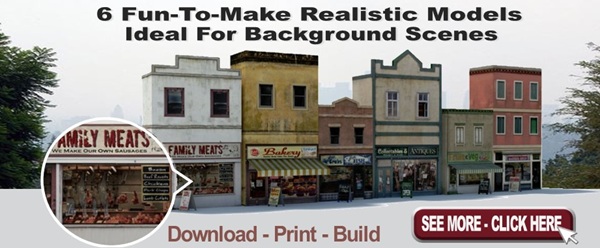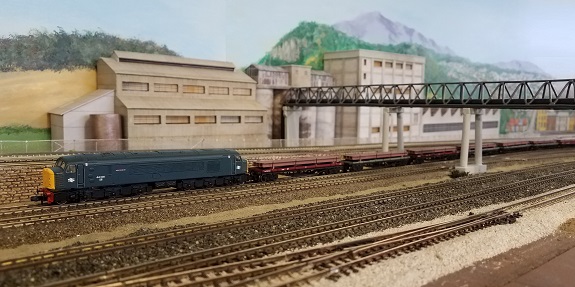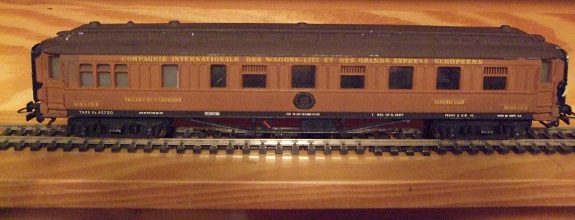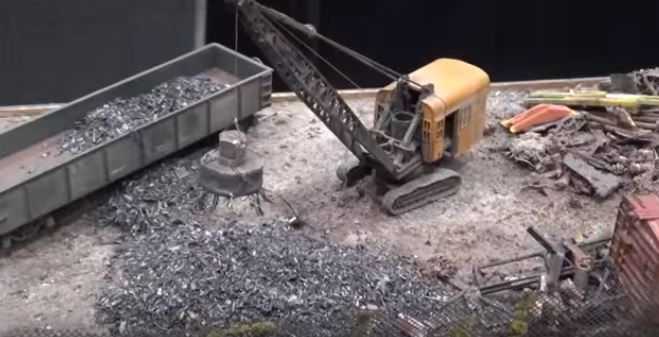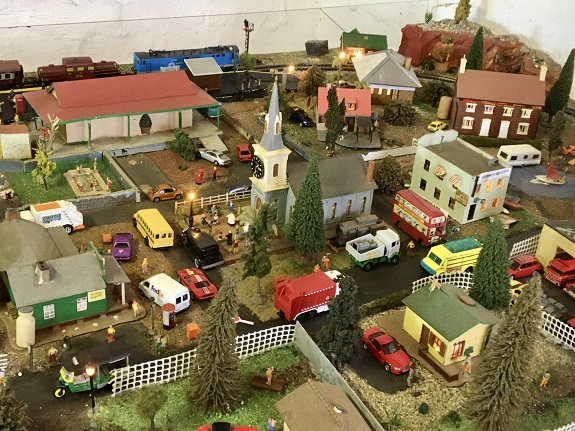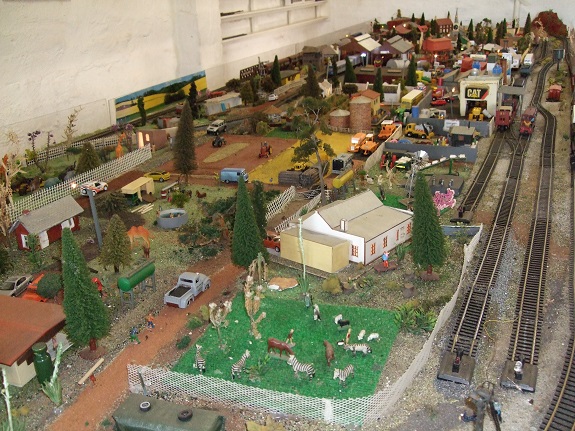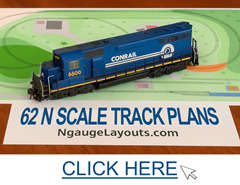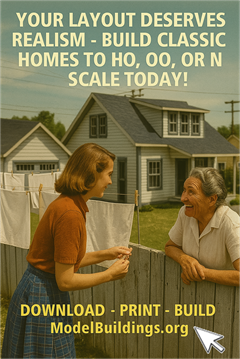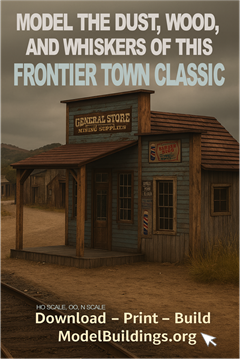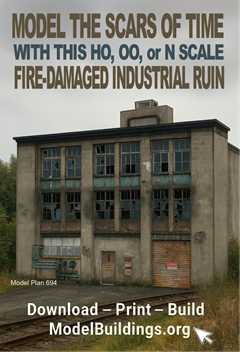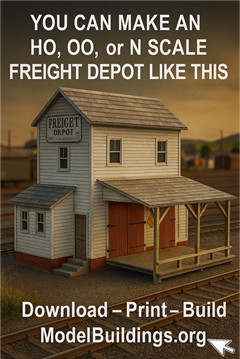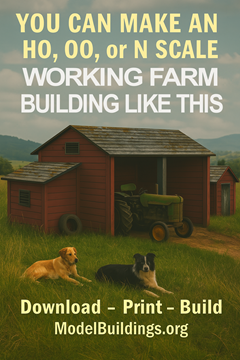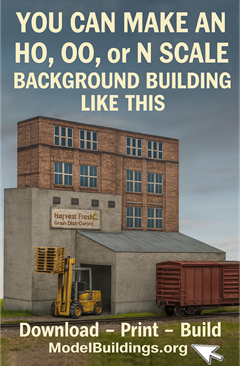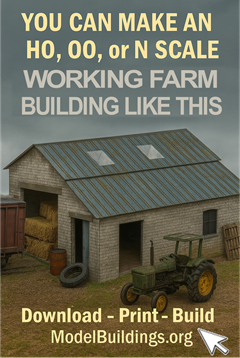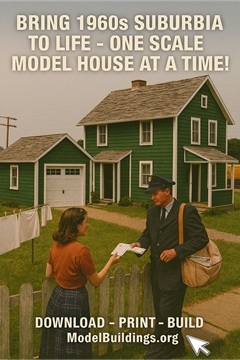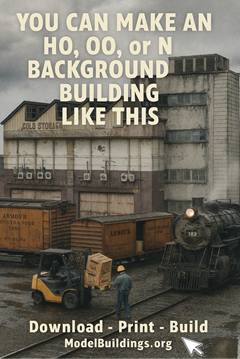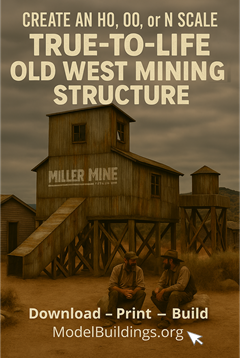Everything on model trains, model railroads, model railways, locomotives, model train layouts, scenery, wiring, DCC and more. Enjoy the world's best hobby... model railroading!
BR Class 44 with Steel HMRG on Show in Tasmania, Australia
Barrie kindly sent in this photo to share:
“Here is a photo my own N scale 1:148 trains I photographed on the Hobart Model Rail Group layout, Tasmania, Australia. This photo is a British Rail, Class 44.”
Original Dining Car Orient Express D2419
Peter from South Africa writes:
“Attached is a copy of the dining car D2419 which I wrote about in my recent blog article which I thought the readers would love to see. According to the info it was made by a firm Poco maybe Poland.
This wagon Dining Car started its life as the original dining car for the first Orient Express going back to the early 1900s and when the WW 1 finished the Armistice was signed in her between France, England, and Germany and was mounted at Versailles France. Along came the WW 2 when Hitler signed the WW2 into operation and stolen the dining wagon 2419 D and used it as his command center on his special war command train until the end of the of WW2. Then according to the records this coach was pushed into a tunnel and burnt. The remains were only found later on but the French had an ace up their sleeve and had a similar coach and brought it out and renamed it 2419D and it is in Versailles today as far as I know. This information was obtained from a Video hunting Hitler shown here in South Africa.
Trust this gives you some info on the coach I use her on my 1930’s SAR trains as it color is what they called Imperial brown which blends in with the 1930’s passenger rolling stock of SAR trains
Cheers Peter Field RSA.”
Your Layout Photo
If you have a photo of your layout or a model railroading photo or diagram you would like to share – simply send the Blog Moderator a message using the ASK A QUESTION link below, and giving a few details about the photo/diagram you want to send for publication on the blog. We will then be in touch giving you an email address so you can forward it to us. Simple!
Equipment At Work – Sent In By Patrick
Patrick was impressed with this busy scene he snapped at the National Model Train Show in Kansas City back in 2018. Looks like a big magnet attached to that crane. Hopefully, we will get back to the good old days of visiting train shows sometime next year.
Easy To Extend Backdrop Industrial Buildings
Here are plans for some background industries you can easily adapt and/or extend.
Confused With Airbrush Types
Kel posted this question:
“I want to start learning to airbrush and was all set to buy a boxed set with jars. Then I found out there are single action and double action types. Now I’m confused about what to buy. Input wanted if someone knows?”
Small Town Ideas
Peter Field from South Africa has kindly offered this follow-up to Keith’s question on planning a small town rural layout.
Peter writes:
“Before I started my present layout I roughly drew up a layout as I stay in a city and we have a historic village some 15kms from I opted to go for the rural scene made a small village with small shops etc and church of course. I also opted for three small businesses/factories and settled for a Furniture factory, a Car maintenance plant, a water house, and a scrap dealer. I made up two farms; one a maize farm, the other a general farm.
My layout is 5.5m x 1.5m wide big enough for me to control. Good Luck. Here are two pictures of the farm and village.”
Thanks for sharing the photos Peter.
Problem Lashing locomotives
Kirk who models O gauge asks:
“I read that you can lash 2 Lionel LionChief locomotives by orienting them in the same direction and using a single remote. I bought 2 BNSF Tier 4 and tried this. Worked well at first but after about 10 different times of running around my 60 ft loop, they started to get jerky. Then they just stopped. I separated them and found one engine would not move. It would light up and rev up but that’s it. Did I do something wrong?”
